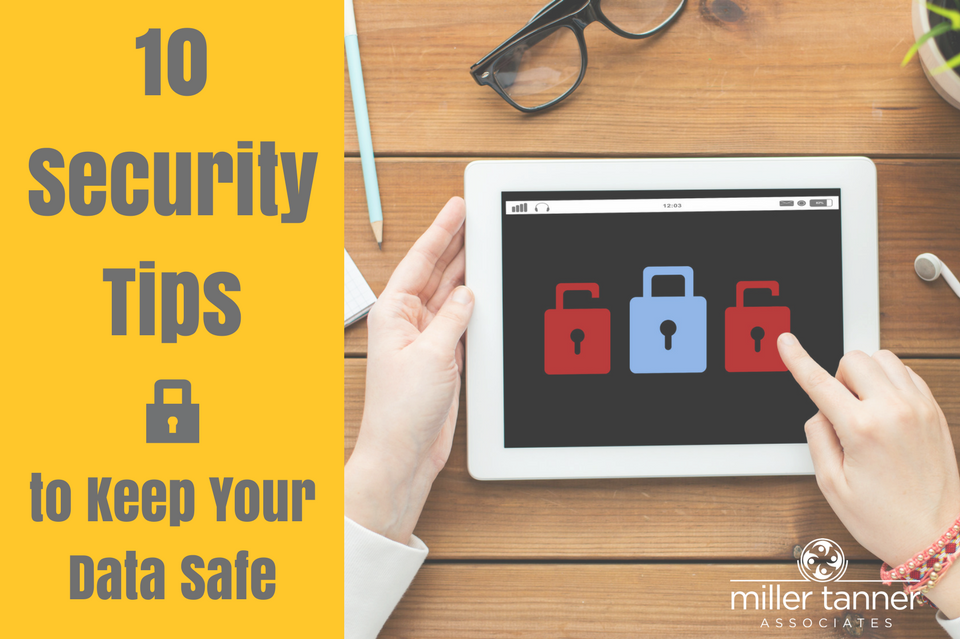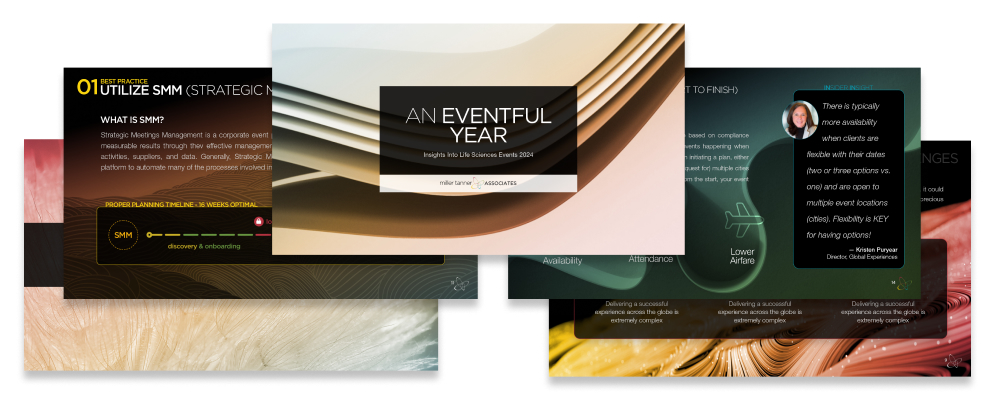Computer viruses, cyber attacks, hackers…Are the unknowns, lurking around in cyberspace, keeping you up at night? By implementing these top 10 security tips from Daniel Conroy, Miller Tanner’s Director of Technology Services, you can rest assured that you are taking proactive measures to safeguard your data against security susceptibilities. Perhaps you’ll sleep better at night too.
10 Security Tips For Data Protection
1. Check For Software Updates
Software updates aren’t always new features. Many times, these updates are to correct a flaw in the software that could put you, and your data, at risk. It is also important to remember that once the software company releases a fix, they are also releasing the vulnerability. This doesn’t mean you have to be first to install every patch released, but it does pay to be timely.
Software companies haven’t quite made software updates mandatory yet, but they are a whole lot more automatic than they used to be. Google’s Chrome browser, for example, will automatically update the software and tell you when it is time to reboot. Microsoft’s Windows 10 has moved in the same direction. Even though more companies are moving to this model it never hurts to be sure. Checking for software updates for all your devices on a monthly basis is a good starting point.
2. Enable the Firewall
A firewall, as the name implies, creates a boundary between your computer and the Internet. This software doesn’t make your computer impervious to attack, but it’s certainly better than nothing at all. Both Windows and Mac OS X come with built-in firewall software. Make sure it’s enabled.
3. Use a Password Manager
Passwords are hard to remember and good passwords even more so. The fact is, unless you have an eidetic memory, remembering more than a few passwords is probably a challenge. This is why there are so many weak and reused passwords for accounts. Weak passwords are bad, but password reuse might be worse. How many of you use the same “good” password (you know the one with the letters, numbers, AND symbols) for multiple services say Gmail, Facebook, and Instagram. Imagine for a moment that Instagram suffers a breach and your account information is now compromised. They likely have your email address (which is probably the aforementioned Gmail account) and since you use the same password to access Gmail and Facebook, those accounts are now compromised too. Things just went from bad to worse.
But there is a better way.
Imagine having a different, complex password for each service you use. Not only is each password more complicated, in the scenario where Instagram was to suffer a breach, you only have to change one password. Interested? By using a password manager such as 1Password or LastPass you are only required to remember one good password and the software does the rest for you.
Speaking of ‘good’ passwords the key is entropy. XKCD.com is a fun and really great explanation of how all that works.
4. Encryption
Nowadays you can encrypt almost anything from your hard drive, your mobile phone and even your communications like email and text. To use encryption, follow this simple rule – when given the option to encrypt, do so.
5. Two-Factor Authentication
Two-factor authentication can be summed up by a simple tenet of something you have and something you know – like getting money at an ATM. You must HAVE your bank card and must KNOW your password. The point is you need more than just one factor (like a password) in order to access the service. Facebook, Gmail, and others offer this feature and you should enable whenever possible. It may make the login process a wee bit slower but the control it provides over your account is well worth it.
6. Bolster Browser Privacy
There is SO much information passed via your browser nowadays, it’s scary. Ever notice how you search for something on Google or Amazon and ads for that VERY same thing show up on other websites later? That level of tracking is just the tip of the iceberg. Do what you can to control your privacy and block those trackers with tools like PrivacyBadger or Ghostery. Looking to take things to the next level? Check out an internet search tool that doesn’t track you, DuckDuckGo.com
7. Malwarebytes
Today you need more than just standard antivirus software. The folks over at Malwarebytes make a solid protection that will help you clean all the little nasties that may be lurking on your PC or Mac.
8. Check App Permissions
If you’re like most people you’ve downloaded more apps on your phone than you actually use and very few of us actually remove apps we aren’t using. Not only are those dormant apps taking up space on your phone but they could be draining your battery too. Not to mention, some of them could be keeping tabs on your location. Do a routine sweep of what’s there and remove the junk!
9. Be Vigilant
Many times we can be our own worst enemies when it comes to data security and privacy. If a request for information doesn’t seem right, trust your gut! You can always call your bank and follow up on an email rather than provide the information requested in some emails.
And when it comes to social media think about what you’re posting and when. For example, is it better to tell everyone on Facebook that your house will be empty for the next two weeks or better to share what a great time you had once you’re safely back from your trip?
10. Use A Webcam Cover
These have become somewhat trendy over the past year with reports that hackers are gaining access to laptops and secretly turning them on to spy on the user. While these covers do little to protect your machine from outside attackers, they do, at least, give you control over when you’re on camera and when you aren’t. The bottom line is they can’t hurt and are easier to work with than tape.
Nothing is one hundred percent secure and even if it could be proven secure today that might change tomorrow; however, by following these 10 easy steps, you can certainly decrease your chances of security vulnerability.
We know that the security of your meeting data is of utmost importance to you. That’s why cybersecurity is a top priority for Miller Tanner at every event. Call us today to learn more about how we keep your information secure at every event.
Updated 10/27/2022


